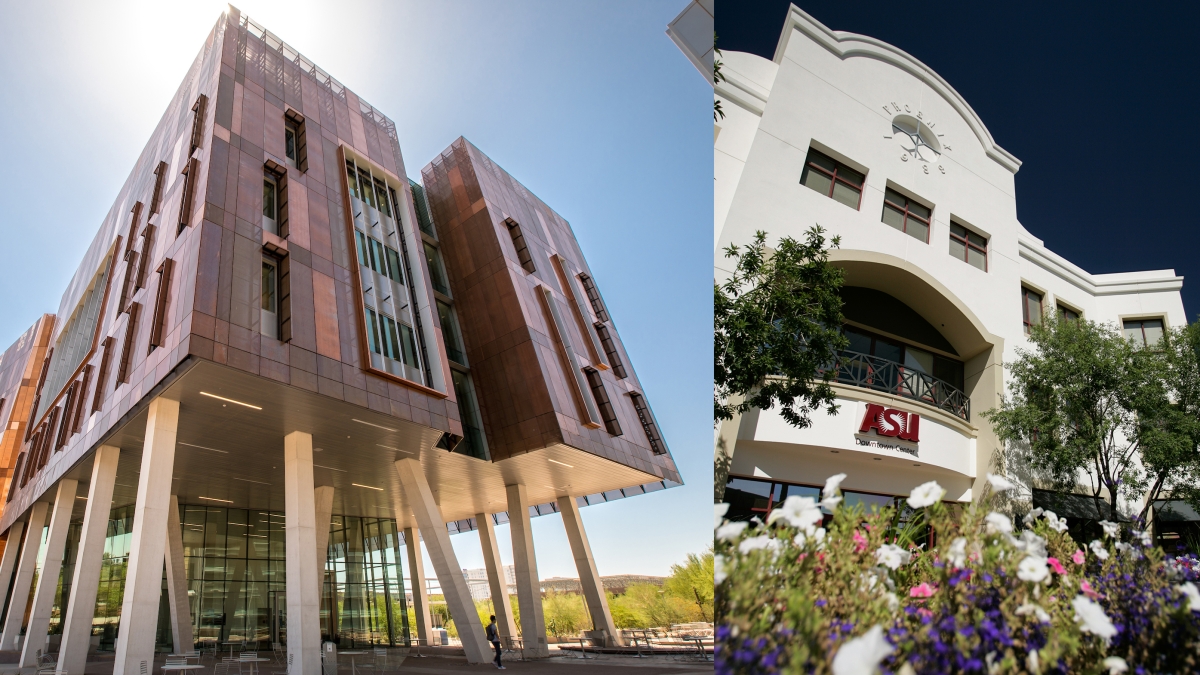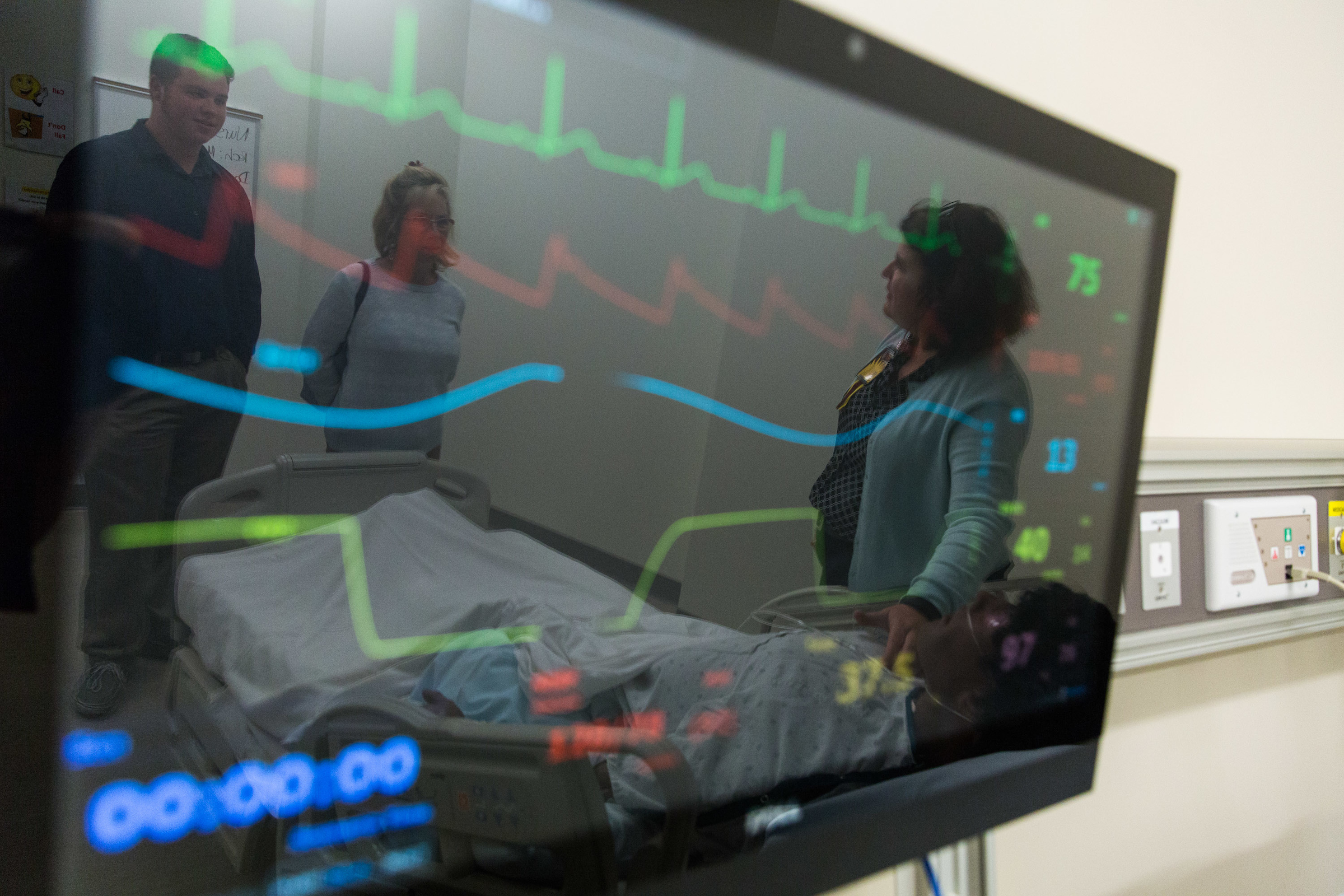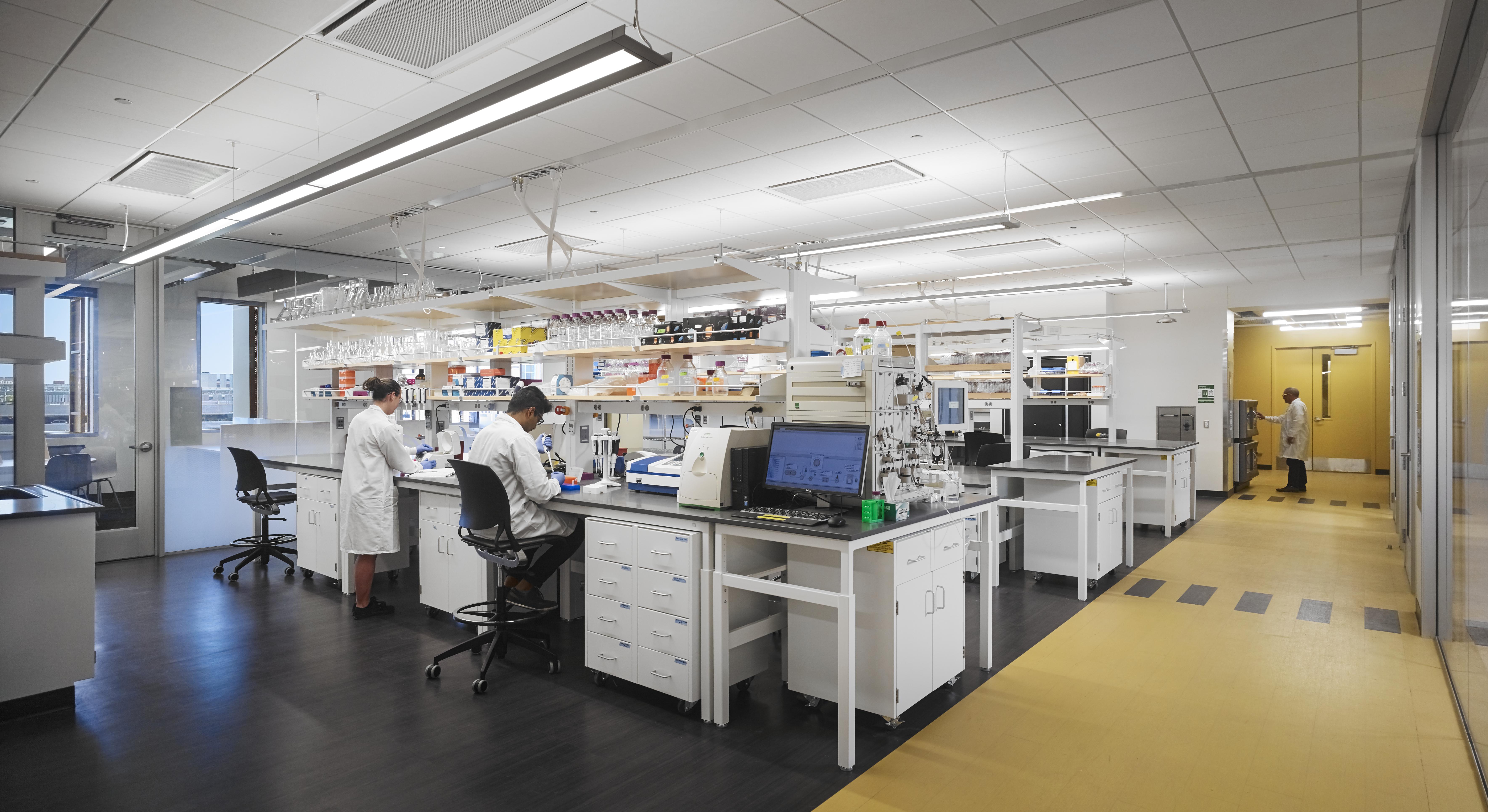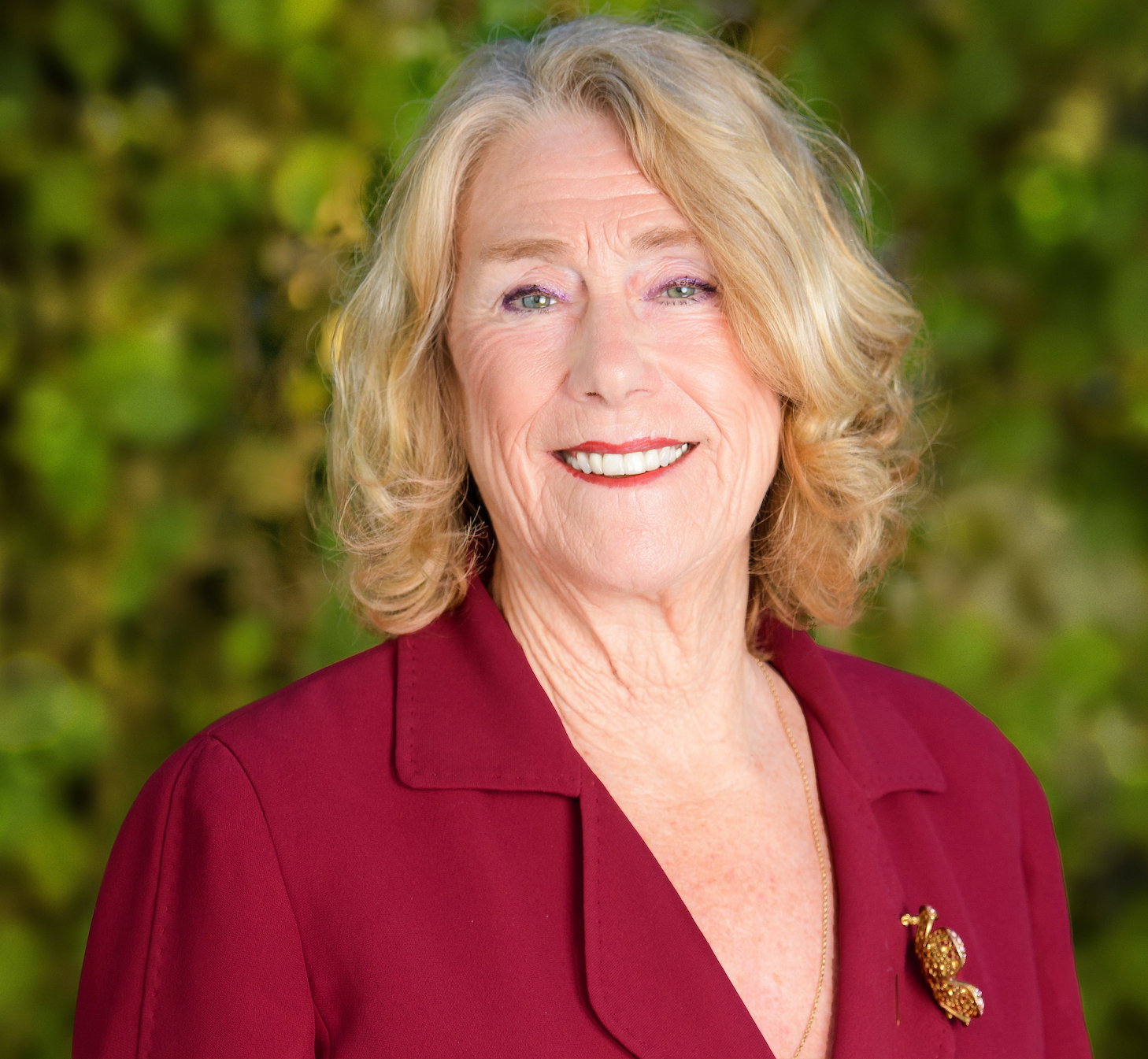Editor's note: This story is being highlighted in ASU Now's year in review. Read more top stories from 2019.
Dementia is a health issue that touches everyone, from the person afflicted to their friends and family to the individuals providing their care. As the aging population continues to grow, the number of people who become susceptible to the condition increases every day, underscoring the urgent need for more well-trained caregivers and better treatments.
This spring, Charlene and J. Orin Edson made a $50 million gift to Arizona State University, to be split evenly between the College of Nursing and Health Innovation and the Biodesign Institute in support of the university’s groundbreaking, multidisciplinary research on dementia, and to enhance education and training for nurses and caregivers.
“The Edson family’s generous gift helps to position ASU as a leader in tackling one of the most challenging health issues of our time,” said ASU President Michael M. Crow. “Our belief is that it will serve as an example of how investing in research for the common good makes possible new breakthroughs, better outcomes and faster progress on a whole host of important problems facing society.”
Gretchen Buhlig, CEO of the ASU Foundation, says the $25 million gift to the College of Nursing and Health Innovation will rename it the Edson College of Nursing and Health Innovation. “The gift will also create The Grace Center for Innovation in Nursing Education (named for Charlene’s mother),” Buhlig added. The $25 million gift to the Biodesign Institute will include the creation of The Charlene and J. Orin Edson Initiative for Dementia Care and Solutions.
Video by Ken Fagan/ASU Now
“The Edsons’ wisdom in giving broadly to impact deeply is illustrated in further funding of new programs, faculty appointments, scholarships and more,” Buhlig said. “The Edsons have made an impact that will resonate for generations.”
The Edsons said they were proud to partner with ASU to find solutions for diseases of the brain.
“We believe in ASU’s interdisciplinary, collaborative approach to finding solutions,” the family said in a statement. “We look forward to new discoveries and solutions to better the quality of life for people affected by brain disease and the heartache of those that love them.”
Sybil Francis, president and CEO of the Center for the Future of Arizona and standing co-chair and founder of Women and Philanthropy, worked closely with the Edson family — whom she and husband Crow have known for 15 years — to secure the gift.
She called the gift, one of the largest ASU has ever received, “transformational.”
“Beyond that, it really speaks to ASU's mission of social embeddedness and taking care of our communities through the university,” Francis said, adding, “When families make decisions to invest, especially at this level, it's really about having faith in the institution.”
The Simulation and Learning Resource Center at the Mercado on the Downtown Phoenix campus provides a clinical simulation experience to future nurses and caregivers. Photo by Deanna Dent/ASU Now
Dementia is the term used to describe the disabling impairment of memory and thinking. Just as there are many forms of cancer, there are many forms of dementia, with Alzheimer’s being the most common.
“It takes a devastating toll on the affected person and an underappreciated toll on family caregivers,” said University Professor of neuroscience Eric Reiman. “So this fight against Alzheimer’s and dementia is a passion for us.”
Reiman also serves as director of the Arizona Alzheimer’s Consortium and chief executive officer at Banner Research.
In 2017, the ASU-Banner Neurodegenerative Disease Research Center was established. Today, it lives on the fifth floor of the Biodesign C building, opened in September 2018. The interdisciplinary collaborative of researchers is poised to become one of the world’s largest teams of translational neuroscientists in the fight against Alzheimer’s, Parkinson’s and other neurodegenerative diseases.
At Biodesign, the gift will continue to fuel the institute’s two-pronged research approach to tackling dementia: one, to identify the causes and work toward a cure, and two, to develop tools for managing the disease.
Researchers work in a lab at the Biodesign C building on the Tempe campus. Photo by Nick Merrick
It will also help to secure a program director and postdoctoral research fellows, supply seed funding for new experimental projects and establish an annual meeting to bring leading international experts in the field to ASU for discussion and collaboration.
Initial collaboration will begin within the university, though — Biodesign and the Edson College will be creating a program to encourage transdisciplinary inquiry that takes research findings from the bench to the bedside.
“We want to work with them because they're on the front lines,” said Biodesign Institute Executive Director Joshua LaBaer. “It's the nurses who actually do a lot of the patient care, and they have the best understanding of what the needs are.”
Edson College Dean Judith Karshmer called it “another beautiful opportunity for disparate units at ASU to come together.”
“We get to come together to do some things that ordinarily, we probably wouldn't have done,” she said. “And I think that a focus on both ends of this sort of continuum from prevention to treatment … is what a university like ASU should be doing, not one or the other.”
Judith Karshmer is the dean of the newly renamed Edson College of Nursing and Health Innovation.
The Grace Center for Innovation in Nursing Education will set up shop in the Mercado A building on the Downtown Phoenix campus, where the Simulation and Learning Resources lab is housed. There, the gift will help advance research on simulation as a way to prepare nurses and other health care providers for careers in the field.
Karshmer hopes a portrait of its namesake, who was also a nurse, will inspire the next generation of nurses to pay it forward in the future.
In a stroke of serendipitous timing, Edson College will also soon be launching a center focused on healthy and resilient aging, to be led by the college’s associate dean of research, David Coon, that will advance capacity-building research opportunities with established community partners.
In addition, a new master’s degree entry program for college graduates from an array of disciplines will feature two-year-long academic practice partnerships in which students gain clinical experience working alongside professional health care providers across the Valley, and a dual PhD/DNP degree will prepare students as “nurse scientists” who have both practice and research capabilities in the area of cognitive impairment, dementia and family caregiving.
Current Edson College PhD student Abi Gomez is looking forward to all the new opportunities. She works as a research technician with Coon, investigating coping techniques for early-onset dementia patients.
Gomez has wanted to work in health care since high school and has studied in many countries, which gave her a chance to see how different cultures address the aging process.
“This will give us more scholarships and more grants to continue producing evidence-based practice … and work toward (solving) this global challenge,” she said.
Top photos: The Biodesign C building on the Tempe campus and the Mercado on the Downtown Phoenix campus, which will house The Grace Center for Innovation in Nursing Education. The Biodesign Institute and the Edson College of Nursing and Health Solutions will each receive $25 million from the Edson family to promote interdisciplinary dementia treatment and cure research. Photos by Charlie Leight/ASU Now
More Health and medicine

Bird flu: Your questions on symptoms, spread and safety answered
Bird flu is no longer only “for the birds.”Infections have expanded beyond wild birds and poultry to a range of animals — from mice to mountain lions, dairy cows to domestic cats, and polar bears to…

Making medicine side-effect free
Many drugs that address medical conditions can come with serious side effects. In drug commercials, the litany of potential side effects is often longer than the benefits being touted. Carl…

Diagnostic research happening at ASU focused on detecting diseases earlier to save lives
It was one of America’s founding fathers, Benjamin Franklin, who may have foreshadowed today’s health care innovation when he quipped the adage: An ounce of prevention is worth a pound of cure.In…





